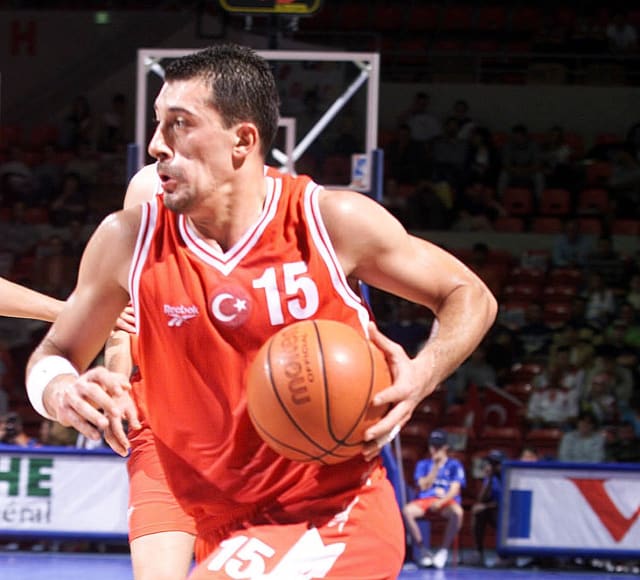Former greats out to master EuroBasket challenge in Istanbul as coaches
ISTANBUL (FIBA EuroBasket 2017) - The stars of the past are now pacing the sidelines at the FIBA EuroBasket 2017 in Istanbul, with four prominent former national team players involved in Group D action.
ISTANBUL (FIBA EuroBasket 2017) - The stars of the past are now pacing the sidelines at the FIBA EuroBasket 2017 in Istanbul, with four of prominent former national team players involved in Group D action having previously lit up the court in their playing days.
Many might still remember Sergey Bazarevich leading Russia to a silver medal finish at the FIBA EuroBasket 1993; Aleksandar Djordjevic scoring 41 points in the Final to win gold two years later; Ainars Bagatskis showing off his long-range shooting skills for Latvia in his four Final Round appearances; or Ufuk Sarica playing key roles for Turkey.
"It's two completely different professions – players have fun and the coaches watch the players have fun."Aleksandar Djordjevic
The list of players with EuroBasket experience now coaching also includes the newly-appointed Lithuania boss Dainius Adomaitis and Yevhen Murzin of Ukraine, but it is the Istanbul-based Group D that really stands out with a high concentration of former greats.
"It's still a great part of my life which I am proud of and miss a lot," Djordjevic told FIBA.basketball. "But it has been a long time since I stopped playing so now I have an entirely different mindset. As soon as I finished playing, I stopped thinking about being a player."

Djordjevic won three FIBA EuroBasket titles with Yugoslavia
A three-time European champion and a bronze medal winner as a player, the 50-year-old playcaller has fond memories of his playing days, but has tried not to dwell on the past too much, entering new challenges with the Serbian team.
"It's two completely different professions – players have fun and the coaches watch the players have fun. We try to prepare them to have fun and have some fun with them along the way, but we have a lot more responsibility towards everyone in the squad, not just the players," said Djordjevic, who is now chasing his first continental medal as a coach.
"A coach who I have worked with in the past once told me we shouldn't be judging players by our own standards; I'm trying to follow this advice, but sometimes it's not easy."Sergey Bazarevich
What is the key to transforming on-court greatness to successful work as a strategist?
"You have to kill the player in yourself to become a coach," Sergey Bazarevich, who averaged 18.8 points per game in Russia's silver-medal run in 1993, explains.
 Sergey Bazarevich was Russia's leading scorer in two FIBA EuroBaskets
Sergey Bazarevich was Russia's leading scorer in two FIBA EuroBaskets
"I'm not thinking as a player anymore, but I think experience helps. A coach who I have worked with in the past once told me we shouldn't be judging players by our own standards; I'm trying to follow this advice, but sometimes it's not easy."
In charge of the Turkish national team now, coach Ufuk Sarica lights up and cracks a cheeky smile when asked to highlight what changed since retiring and stepping into a coaching role.
"Every time I step on the court, I still want to be playing," he explains. "But that is unfortunately not possible. This is much more difficult, you have a lot more responsibilities and details to think about. Being a player is easier, for sure."
 Ufuk Sarica averaged 13.3 points at the FIBA EuroBasket 1997
Ufuk Sarica averaged 13.3 points at the FIBA EuroBasket 1997
Ainars Bagatskis took over the reins of the Latvian national team before FIBA EuroBasket 2011 and is now coaching in his fourth tournament after appearing in as many as a player.
"I always tell my players – if you want to experience basketball in a different way, just become a coach. Behind that line, basketball looks one way and when you come across to the other side, it looks totally different," he offered, as a comparison of the two professions.
"But one thing that cannot change is that we must enjoy basketball and the things we do on and off the court."
FIBA